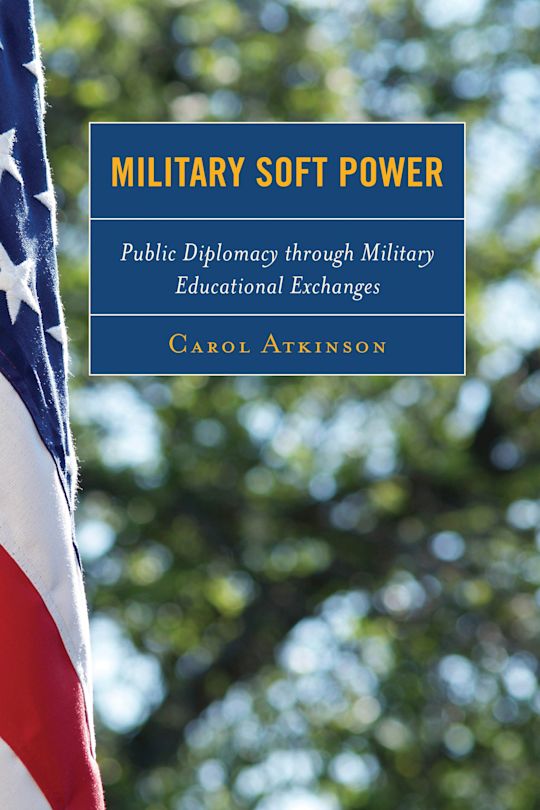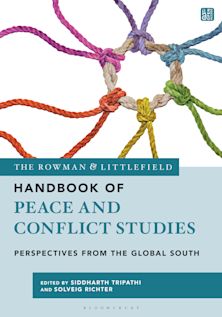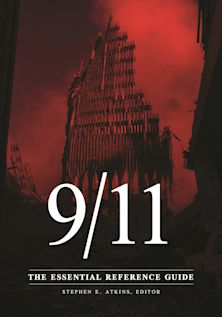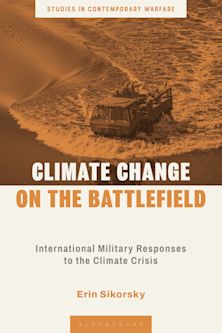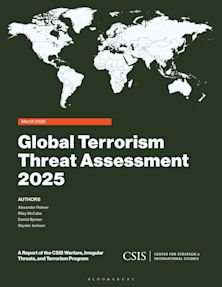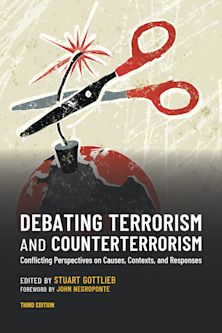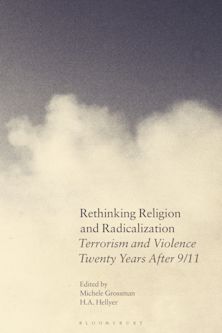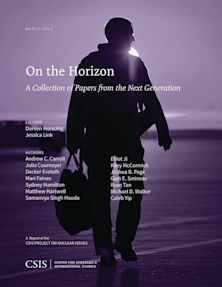- Home
- ACADEMIC
- Politics & International Relations
- Security and Strategic Studies
- Military Soft Power
This product is usually dispatched within 1 week
- Delivery and returns info
-
Free CA delivery on orders $40 or over
You must sign in to add this item to your wishlist. Please sign in or create an account
Description
The military has long been associated with hard power, yet it is engaged in public diplomacy as it represents the U.S. abroad and facilitates the diffusion of ideas. Military Soft Power examines one such aspect of U.S. public diplomacy: how the United States extends its influence or “soft power” worldwide through military educational exchange programs hosted by the United States’ elite military schools, its war and staff colleges. The presence of international officers at U.S. military schools is substantial, yet very little is known about the long-term impacts of these exchanges. This study shows how the exchanges build personal and professional networks that then serve as important conduits of ideas between the United States and other countries. These networks help to improve interoperability between the U.S. military and its partner nations and to extend U.S. influence through military soft power rather than through hard power.
This is an alternative bottom-up view of how military organizations can influence political processes and decisions through the development of cross-border communities of military professionals. This involves a two-step model of socialization. First, individuals (military officers) are socialized by a large political institution (the U.S. through its war and staff colleges). Second, these individuals function as idea entrepreneurs, bringing new ideas, beliefs, and practices home with them. There is a need for policies and programs that help countries successfully transition from authoritarian governance to democratic rule as well as countries undergoing democratic revolutions and those seeking more gradual change. Exchange programs are one pathway, in which an important group of citizens (military officers and their families) can experience the everyday functioning of democratic practices and institutions.
This unique survey provides timely insights into the important political impacts of military exchange programs and how military institutions and their personnel influence international politics beyond simply being used as an instrument of coercion.
Table of Contents
PART I: THEORY AND ARGUMENT
Chapter 2: Political Socialization and Educational Exchanges
Chapter 3: Building Military Soft Power
PART II: IMPACT OF MILITARY EDUCATIONAL EXCHANGES ON PARTICIPANTS
Chapter 4: The History of Educational Exchanges at U.S. War and Staff Colleges
Chapter 5: Backgrounds, Social Integration, and Promotion Potential of the Exchange Officers
Chapter 6: Perspectives and Opinions of the Exchange Officers
PART III: IMPACT OF MILITARY EDUCATIONAL EXCHANGES ON DEMOCRATIC TRENDS
Chapter 7: Impact on the Development of Democratic Institutions
Chapter 8: Impact on Democratic Practices
Chapter 9: Conclusion and Policy Implications
References
Product details
| Published | Jun 26 2014 |
|---|---|
| Format | Hardback |
| Edition | 1st |
| Extent | 204 |
| ISBN | 9781442231283 |
| Imprint | Rowman & Littlefield Publishers |
| Illustrations | 26 b/w photos; 17 tables |
| Dimensions | 238 x 158 mm |
| Publisher | Bloomsbury Publishing |
About the contributors
Reviews
-
As the U.S. seeks to empower its partners to assume more responsibility for international security, Atkinson gives us a pioneering study to understand why, how, and when military education works.
Derek Reveron, author of Exporting Security: International Engagement, Security Cooperation, and Changing Face of the U.S. Military
-
Atkinson presents an innovative and insightful study of the U.S. military as an instrument of soft power. Presenting the first systematic, data-supported analysis of the impact of military exchange programs on the roughly 7,000 foreign military and civilian personnel who attend U.S. war colleges, training courses, and conferences each year, Atkinson persuasively argues that these exchange programs yield tangible, measurable results. Drawing upon constructivist theory, Atkinson examines how professional military education acts as a conduit for transmitting norms ranging from the notion that civilian authorities should control the military to an increased appreciation of basic human rights. Thoughtful, well-researched, and refreshing, this study challenges the traditional distinction between hard and soft power, arguing that the U.S. military’s vast array of schools, training courses, and exchange programs not only enhances the military proficiency of its international graduates but imbues them with a greater appreciation for democratic values and civil rights.
Douglas Peifer, Professor of Strategy, U.S. Air War College
-
Military Soft Power re-frames the discussion of the value of “experience and relationships” in influencing attitudes and behaviors. Supporters of US provided mil-to-mil education and training are now armed with more than anecdotal evidence when they argue that resources used to educate international military students provide “good value for money."
Jim Fain, U.S. Army, Retired
-
We generally associate military resources with the hard power of coercion, but they can also produce the soft power of attraction. No-one has shown this better than Carol Atkinson in this important and well researched book.
Joseph S. Nye Jr., University Distinguished Service Professor, Harvard University
-
Carol Atkinson provides a fascinating study of how the transfer of ideas through international military networks shapes civil-military relationships. Making a theoretical contribution to the literature on soft power and greatly enhancing our understanding of military education exchanges, Atkinson’s deeply researched work is a gem.
James Goldgeier, American University








